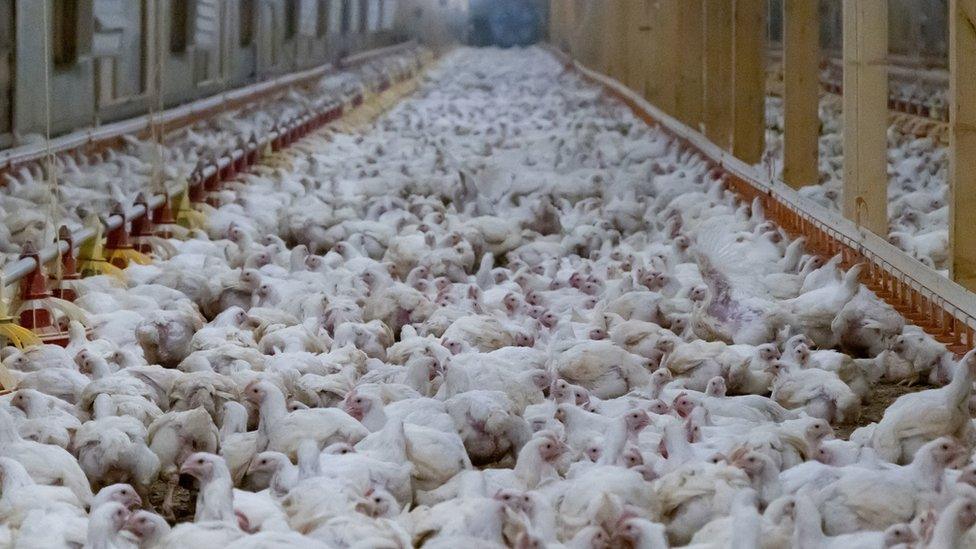No ban on 'Frankenchicken' breeds, court rules
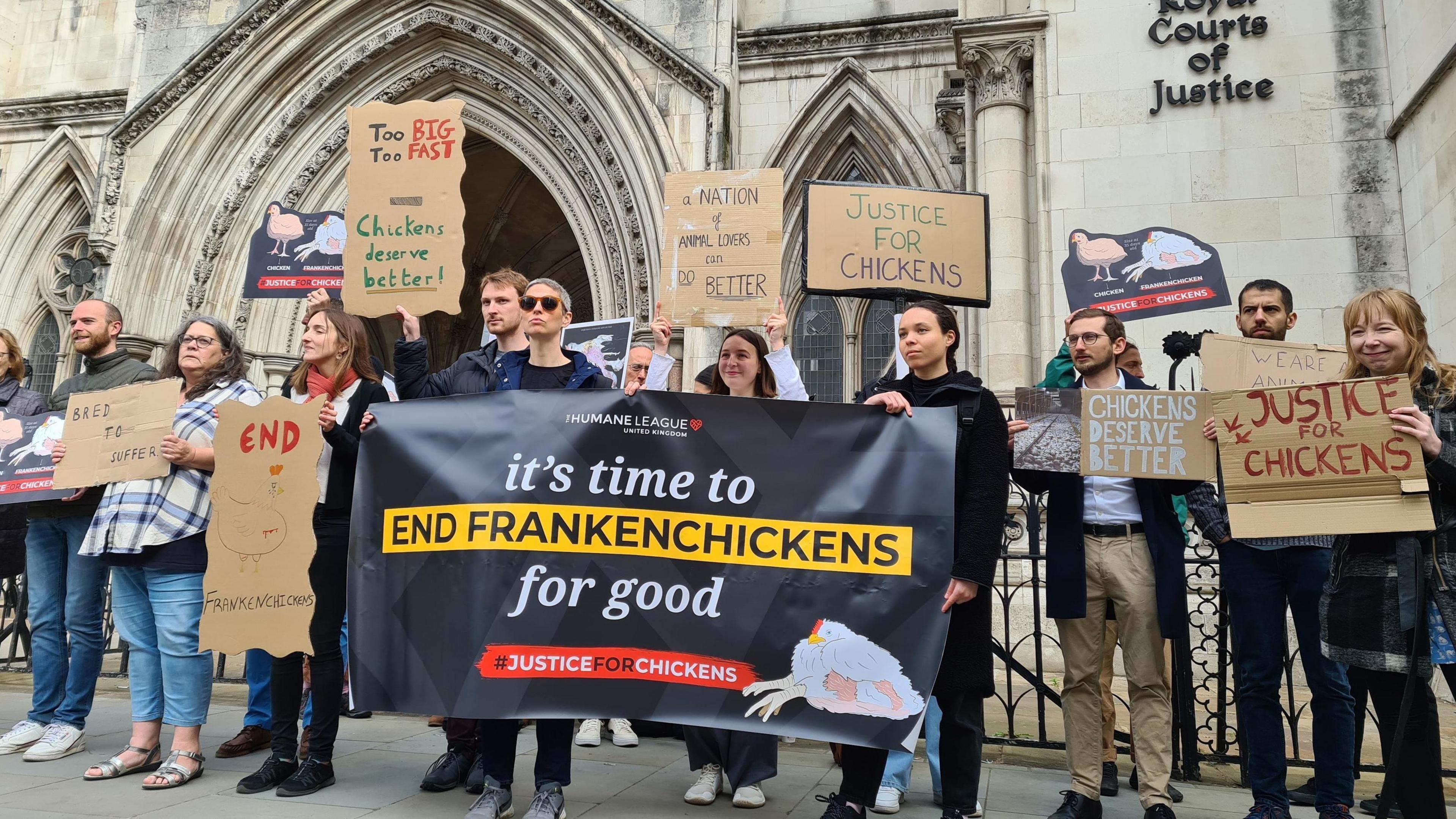
Campaigners said the judges' comments were a "historic victory for animals"
- Published
Appeal court judges have again dismissed a case calling for fast-growing breeds of poultry, so-called "Frankenchickens", to be banned in the UK.
The Humane League UK (THLUK) had challenged a decision by the High Court in 2023 that ruled the Department for Environment, Food and Rural Affairs (Defra) was not breaking the law by allowing their continued use.
Lord Justice Snowden, one of three judges ruling on the case said that welfare could not be "traded off against the economic interests of farmers".
Defra welcomed the judgement and said it was confident farm animals were protected by animal health and welfare laws.
'Historic ruling'
The RSPCA described the ruling as "a significant and vital step" in improving the welfare of chickens that lived "short, brutal lives".
Managing director of THLUK Sean Gifford said the "historic ruling" paved the way for the private prosecution of poultry farms.
In a 21-page judgment, Lord Justice Males said there was contested evidence on fast-growing breeds and so the court could not determine whether keeping them was unlawful.
However, he added: "If a given breed can reasonably be expected to suffer a detrimental effect on its health or welfare because of its genetic make-up, the prohibition on keeping that breed of animal applies regardless of any commercial advantages which it may have."
He said the regulation "unequivocally prioritises animal health and welfare over commercial benefit", but it "does not prohibit selective breeding which can be undertaken to promote productivity with no detriment to an animal's health or welfare".
Liam Hodgson, from THLUK, was once employed as a quality manager for a large poultry producer in Lincolnshire.
He previously told the BBC that he had witnessed a wide range of health and welfare issues due to the speed of growth of some chickens, "including lameness, hip dislocations, heart attacks and burns from laying in their own urine and faeces".
Undercover footage recorded in 2023, showed the condition of birds in a legally compliant poultry unit.
According to the RSPCA, 90% of all supermarket chickens were "Frankenchicken" breeds, genetically selected for their rapid growth rate.
It said it was "delighted" that the ruling stated that it was unlawful to farm animals who suffer because of their genes, but added that it wanted to see fast-growing breeds phased out.
Emma Slawinski, director of policy, advocacy and campaigns, said: "Fast-growing breeds often struggle to stand, suffer from heart defects, and even sudden death."
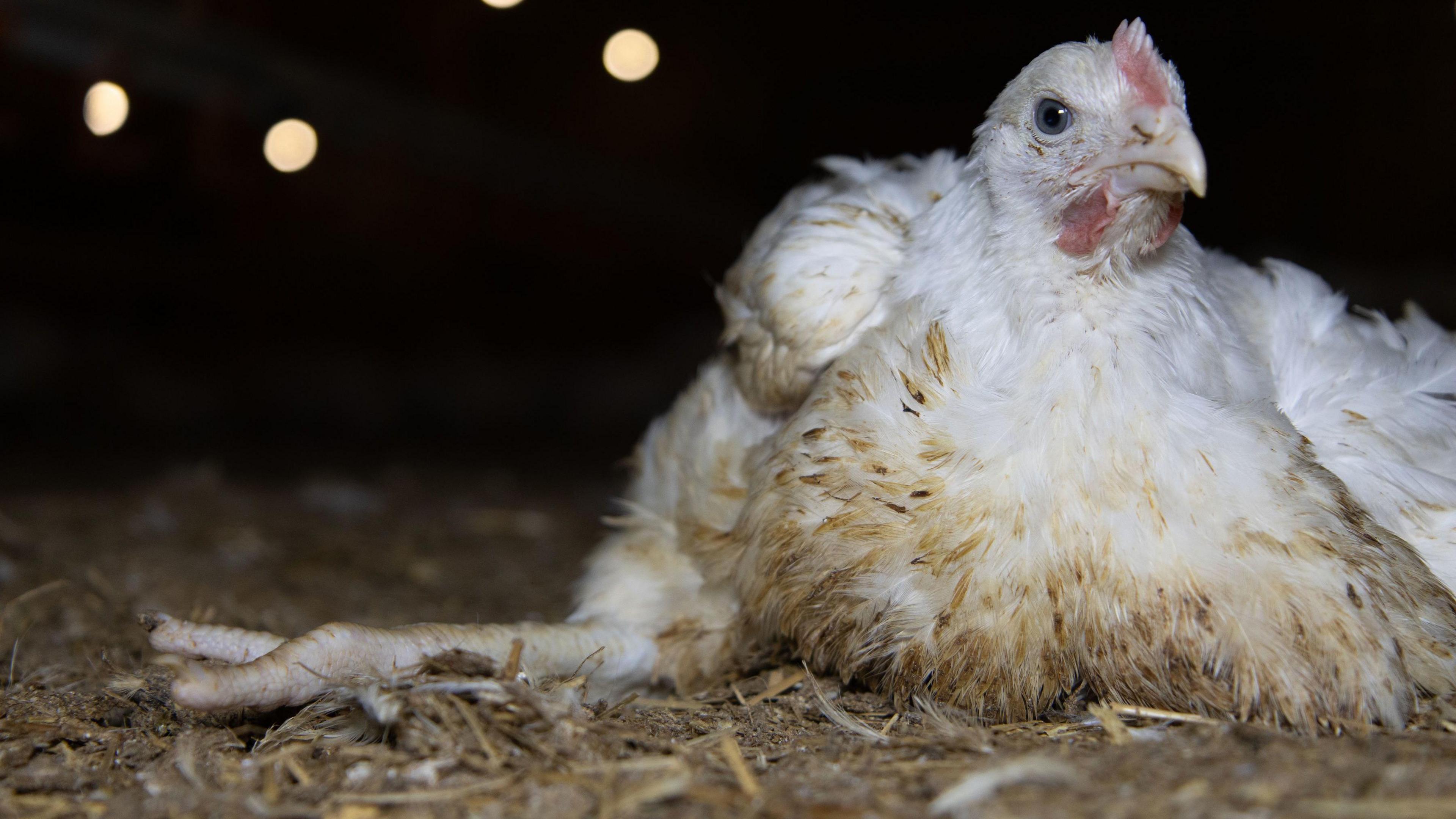
Fast-growing birds experience leg and hip problems, as the weight of their muscle mass rapidly increases, according to campaigners
According to THLUK, more than one billion chickens are slaughtered for meat in the UK each year.
Mr Gifford is now calling on Defra to "work with farmers" to end the use of "Frankenchickens", which he said represented "the biggest animal welfare crisis of our time".
Defra, which had defended the legal challenge, said it did not have to set laws on keeping particular breeds.
It also told the court in London that it did not accept there was a scientific consensus that fast-growing chicken breeds could not be kept without an impact on their welfare.
A Defra spokesperson said: "We welcome the judgment. Our farm animals are protected by robust animal health and welfare laws, which includes detailed requirements on how meat chickens should be kept.
"Any potential breaches of these laws are taken very seriously and we will continue to work with all stakeholders to maintain and enhance our high standards."
Listen to highlights from Lincolnshire on BBC Sounds, watch the latest episode of Look North or tell us about a story you think we should be covering here, external.
Related topics
- Published24 May 2023
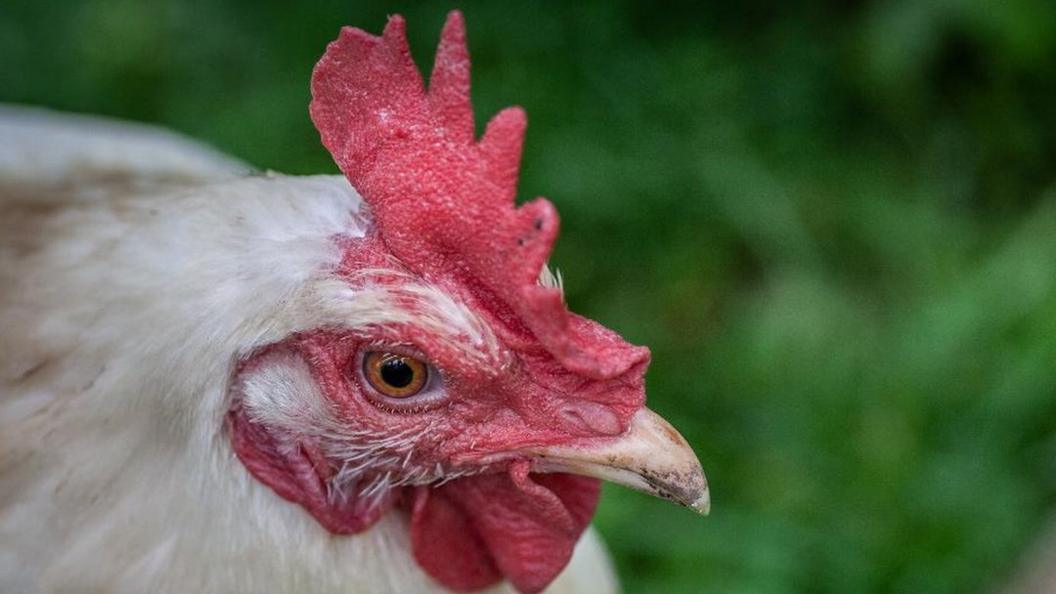
- Published23 October 2024
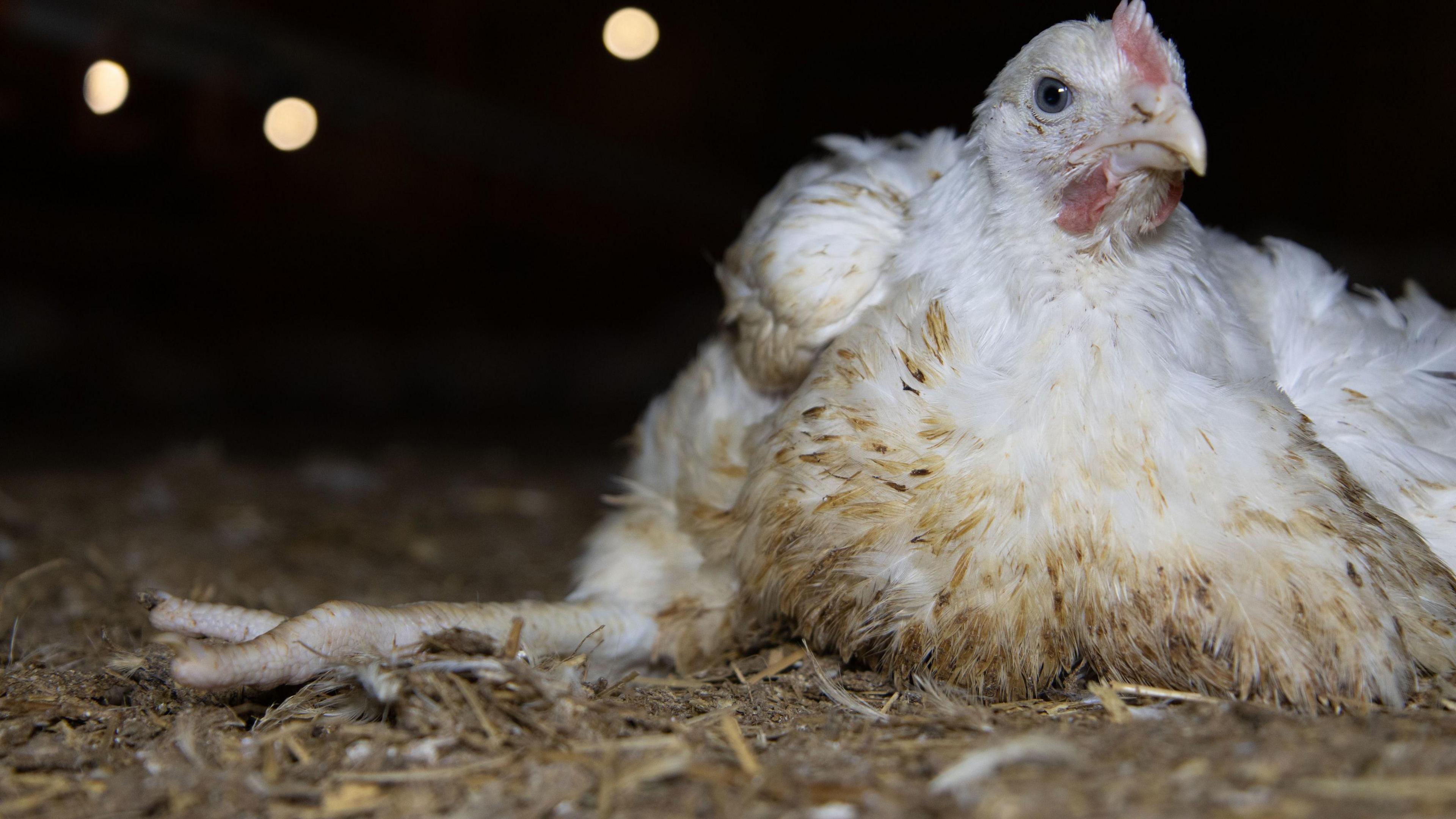
- Published8 September 2023
